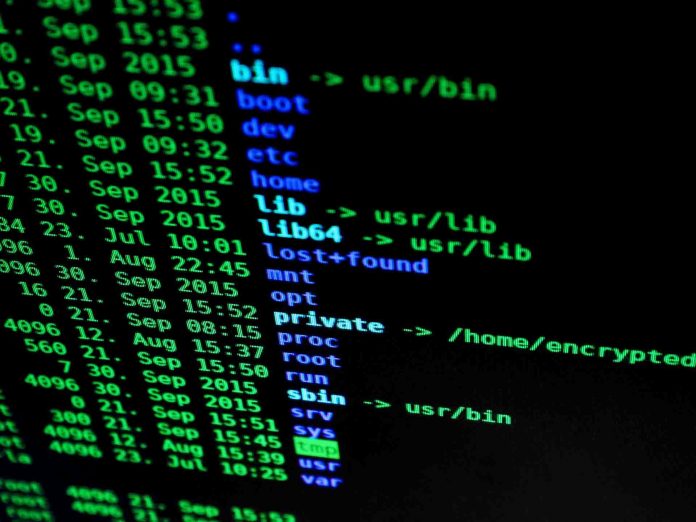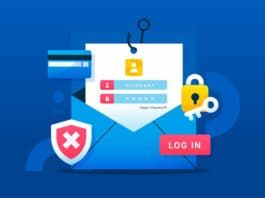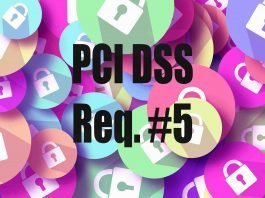Are you installed on your systems with antivirus software? Do you update antivirus software daily? Is your antivirus software capable of detecting malicious software? Such questions regarding antivirus software are handled by PCI DSS Requirement 5.
PCI DSS Requirement 5 mainly deals with the distribution and management of anti-virus software. Anti-virus software should be installed on systems affected by malware to provide protection.
What are the PCI DSS Anti-Virus Requirements?
PCI DSS Antivirus requirements focus on protecting against all types of malware that can infect systems. The word “malware” is the general name for any software that enters the network and is presented as a threat that exploits system vulnerabilities. Viruses, worms, rootkits, adware, and Trojans are commonly referred to as this kind of software.
See Also: PCI DSS Requirement 5 Explained
Without a regularly updated antivirus solution, new forms of malware can attack systems, disable a network, or lead to data breaches.
For PCI DSS antivirus compliance, you must meet the following requirements:
- Anti-virus software must be installed on all components covered by the PCI DSS and are commonly affected by viruses.
- The anti-virus solution must detect, remove, and protect against all malware types, such as Trojans, worms, spyware, adware, and rootkits.
- Anti-virus solutions must be protected with the latest security updates and signature files.
- Unauthorized persons should not stop antivirus software, and configuration changes should not be made.
- Antivirus software should regularly scan systems.
- The anti-virus solution should provide the ability to monitor virus and malware activity through audit logs. These audit logs should be managed per PCI DSS requirement 10.
- An antivirus procedure containing all the above requirements should be established and announced to all employees.
In terms of security, you should not delegate the responsibility to the antivirus solution only and consider your systems not widely affected by malware as safe. Malware trends and identification of new vulnerabilities should be included in configuration standards and protection mechanisms.
Why Should You Use Anti-virus Software?
PCI DSS requires antivirus software to be installed on all systems typically affected by malware, such as Windows operating systems. Anti-virus software usually offers an extra layer of protection to every system within a network.
You can identify new malware and system attacks using reliable external sources such as US-CERT, SANS Institute, and manufacturers’ anti-virus threat information streams. You can then implement multi-layered protection measures on your systems by configuring warning and monitoring mechanisms for unusual behavior, such as new files added to known malware folders or unauthorized access attempts.
Why are anti-virus updates important?
Installing antivirus software on computers is not enough. To protect against known malware, you should ensure that anti-virus software is updated daily. Creating an up-to-date anti-malware system will prevent any known malware from infecting your systems.
Attack time can be minimized thanks to the proactive vulnerability management provided by antivirus software. This significantly reduces the opportunity for hackers to attack systems and capture sensitive data successfully.
System administrators should make sure that their antivirus software is up to date, including virus signatures. Anti-virus software should not be considered as a client-based antivirus system only. It must also be used for separate device and workstation configurations.
In addition to all these, you should periodically scan your systems for anti-virus according to PCI DSS requirements.
So, Is Anti-Virus Software Required If You Are Using Linux?
Linux servers are generally not considered malware-affected systems. However, it is highly recommended to use antivirus software on every Linux server that is open to the Internet.
Contrary to popular opinion, malicious software targets both Linux and Windows systems. For this reason, the risk of not installing antivirus software on Linux systems open to the Internet is very high.
What Does Next-Generation Anti-virus Software Offer for PCI DSS Compliance?
Antivirus software has recently been less and less successful in preventing malware and zero-day attacks and protecting systems from these threats. After all, traditional anti-virus technology is a technology that dates back 25 years.
Some antivirus solutions include innovative additions that detect new types of malware and take action. Still, traditional anti-virus software often finds it challenging to protect until malware infects a system.
Traditional antivirus solutions are based on known virus signatures. However, signature-based anti-viruses are incredibly reactive. They protect the system by quarantining the viruses they detect. If there is no malware type in the signature information, they cannot see the virus and continue to allow the program to run.
Some malware is programmed to infect the system or change themselves every day or when your machine is not working. After all, different signatures have to be created for these types of malware each time. That’s why malware is always one step ahead of antivirus software.
To truly meet the PCI DSS requirement 5, it is necessary to go beyond traditional antivirus solutions. After all, signature-based antivirus software does not provide complete protection against all types of malware, such as ransomware.
In short, traditional antivirus software does not protect systems; only if they detect malware infections, they will remove it from the system. For this reason, standard software based on signatures is very inefficient.
Next-generation anti-virus software, on the other hand, use artificial intelligence to detect malicious software.
Machine learning is the absolute future of securing knowledge. Computers can classify millions of parameters accurately and then decide will increase their productivity levels higher than you can achieve with humans.
Every antivirus software on the market will probably support artificial intelligence within the next five years.
All these developments, of course, do not mean that there are no weaknesses in machine learning. After all, there are still ways to deceive the machine.
Virtually, PCI DSS requirement 5 deals with whether you are using antivirus in your environment. If you are using antivirus software with the necessary features for infected systems in your environment, you meet the requirement.
However, it should not be forgotten that the antivirus software you use may not fully protect your critical systems against developing threats because of its signature-based methodology.
Additional Tips for PCI DSS Anti-Virus Requirements
As a QSA and security expert, I recommend you continue to use and update anti-malware tools. Still, be sure to integrate file integrity monitoring tools into your malware discovery plan. The first time you encounter malware that escapes all your other defenses, you’ll realize its actual value.
Below are a few other things to remember when getting PCI DSS Requirement 5 compliant:
Document everything: Provide documentation of all antivirus procedures and share them with employees.
Scan your systems regularly: Before a breach occurs in your company, you will need to identify vulnerabilities. Schedule regular vulnerability scans for your networks.
Maintain and review audit logs with IT staff: Ensure that someone has examined the records. When no one is notified, an important violation notice will not prompt you to take action.




